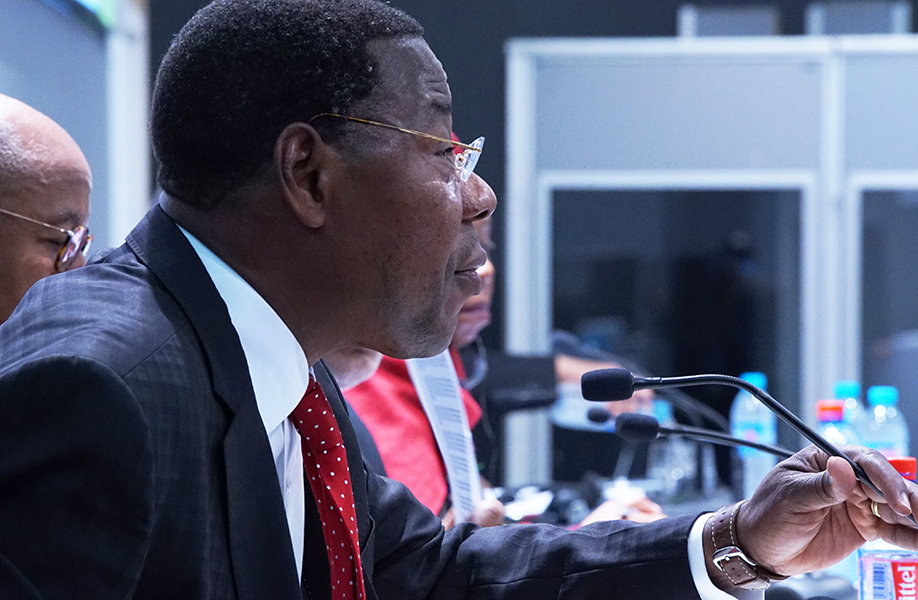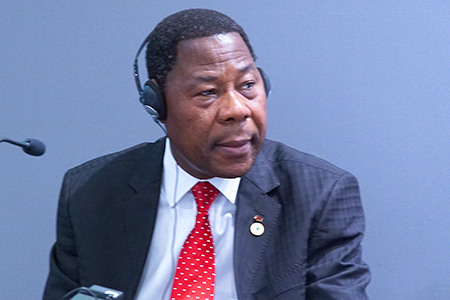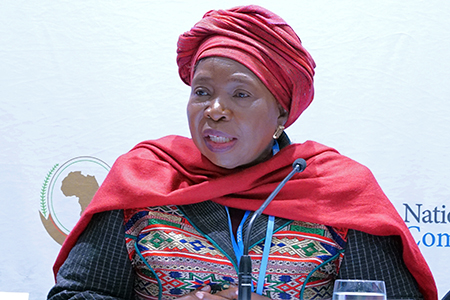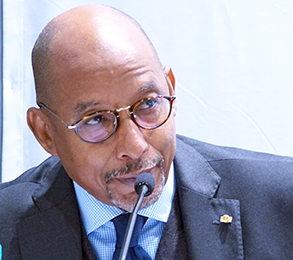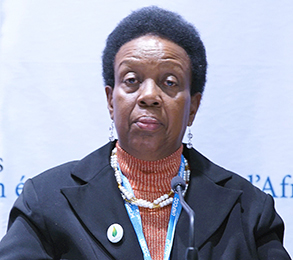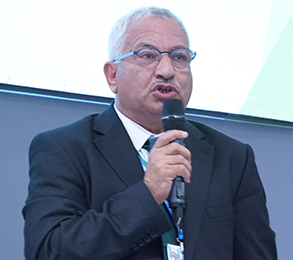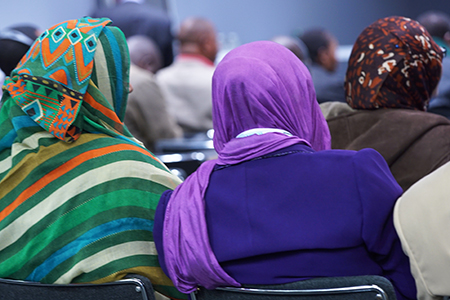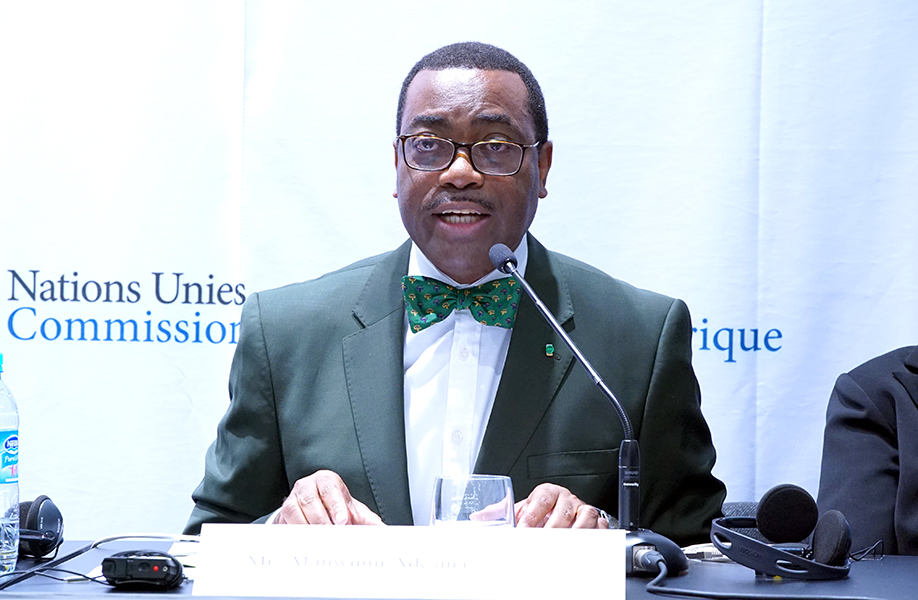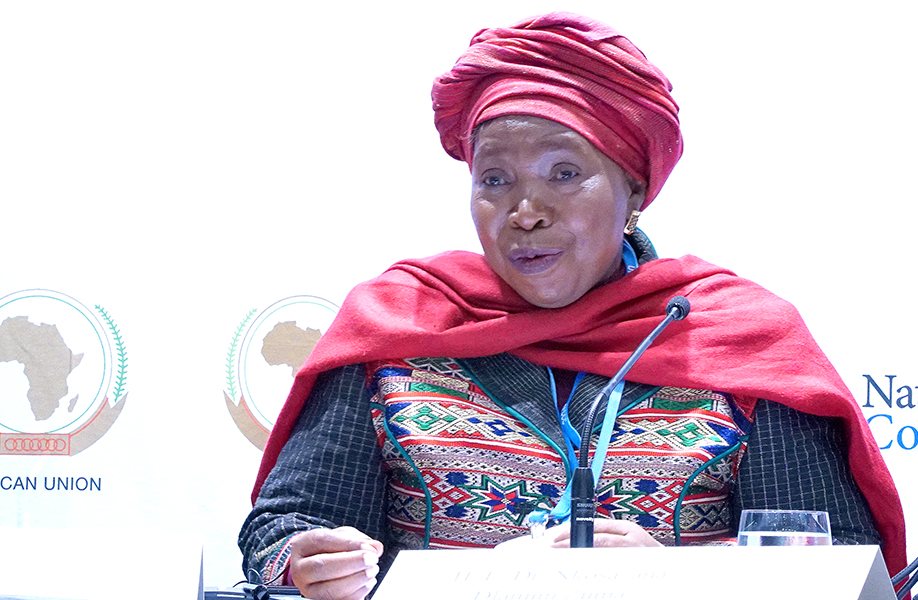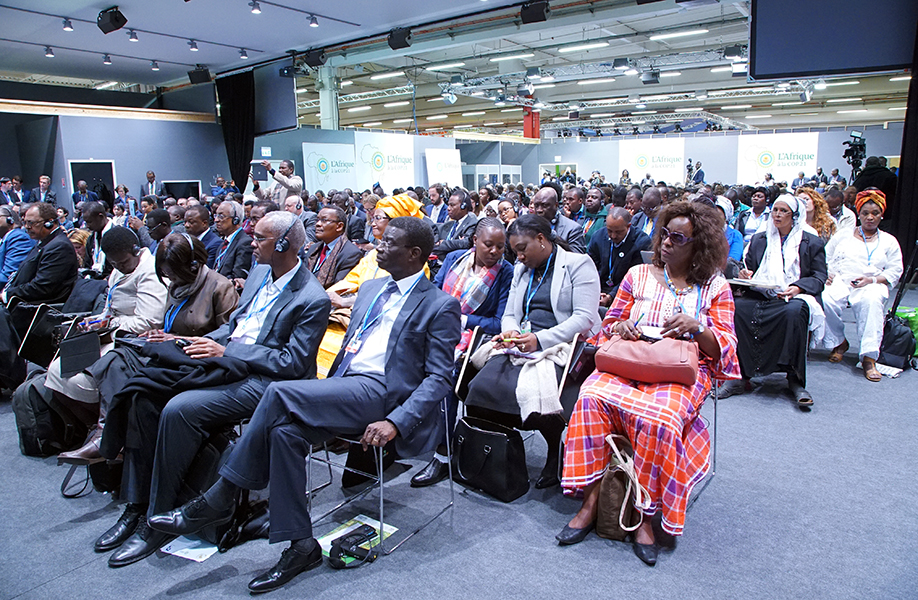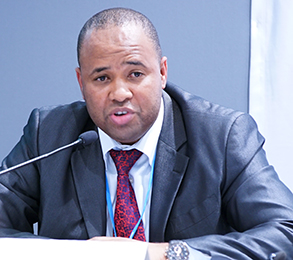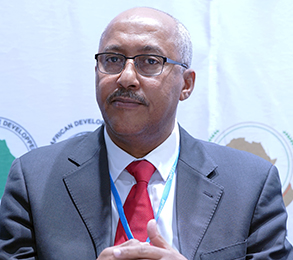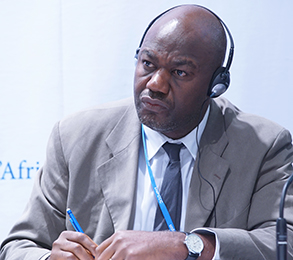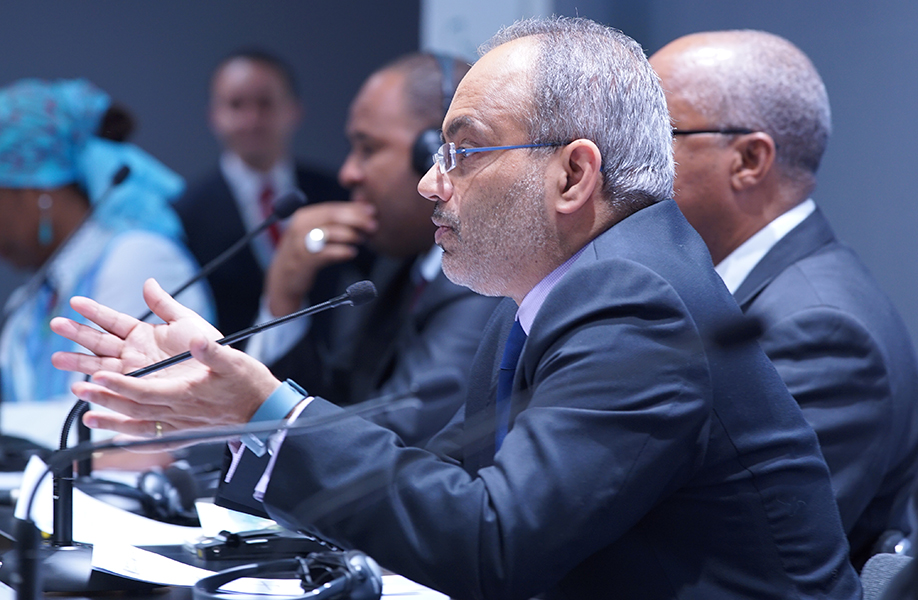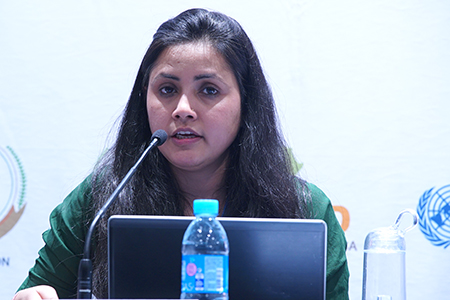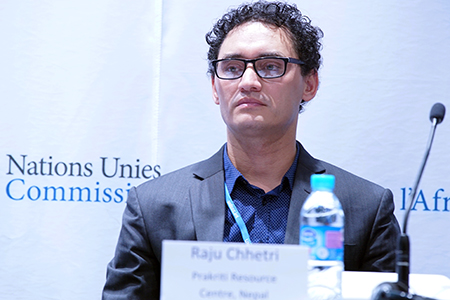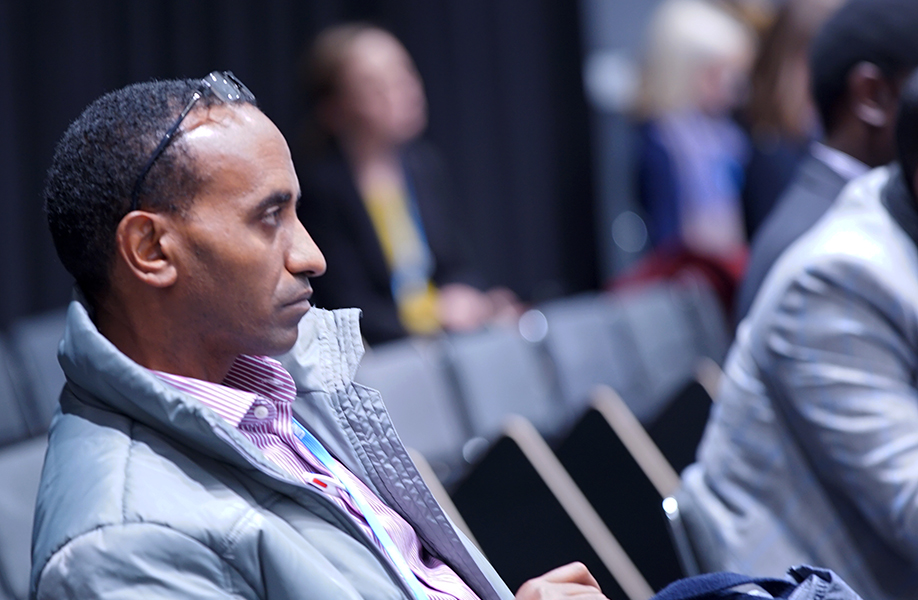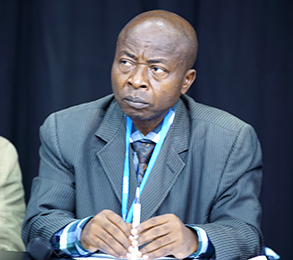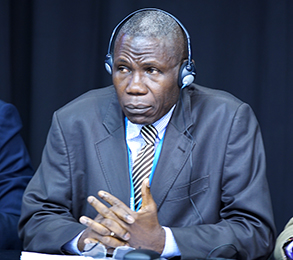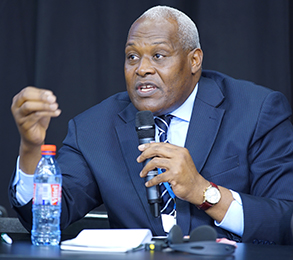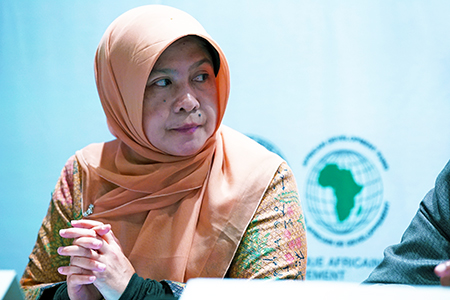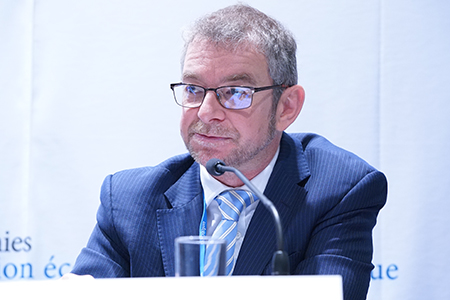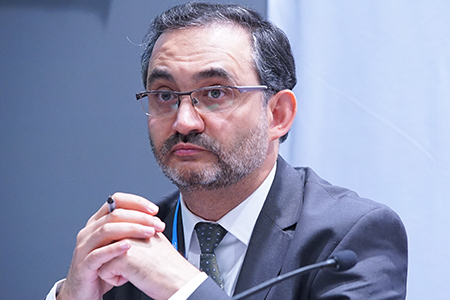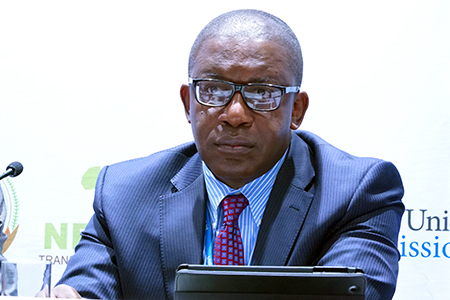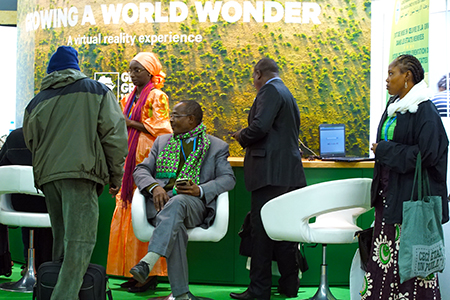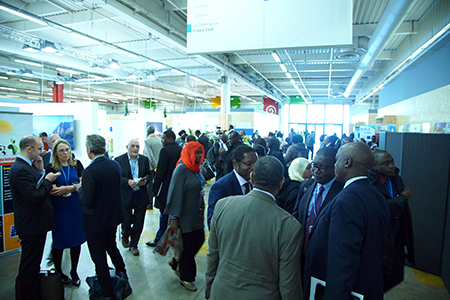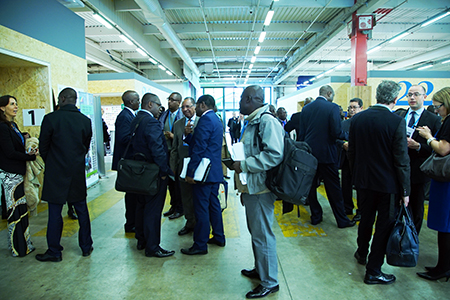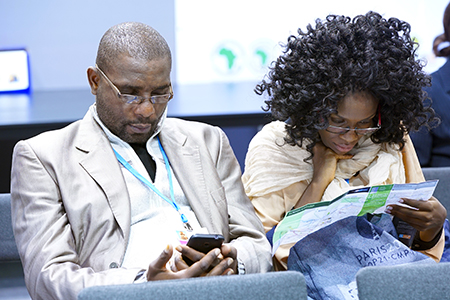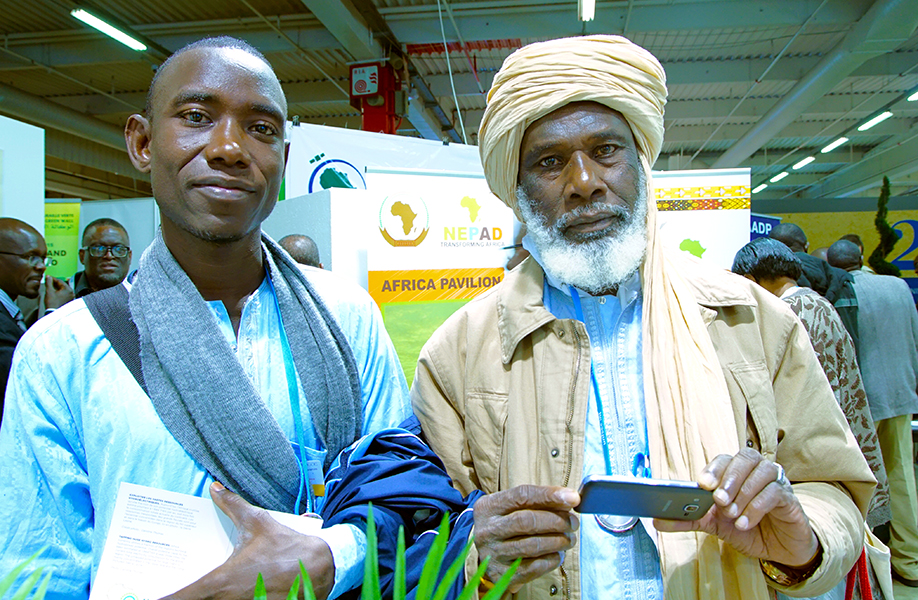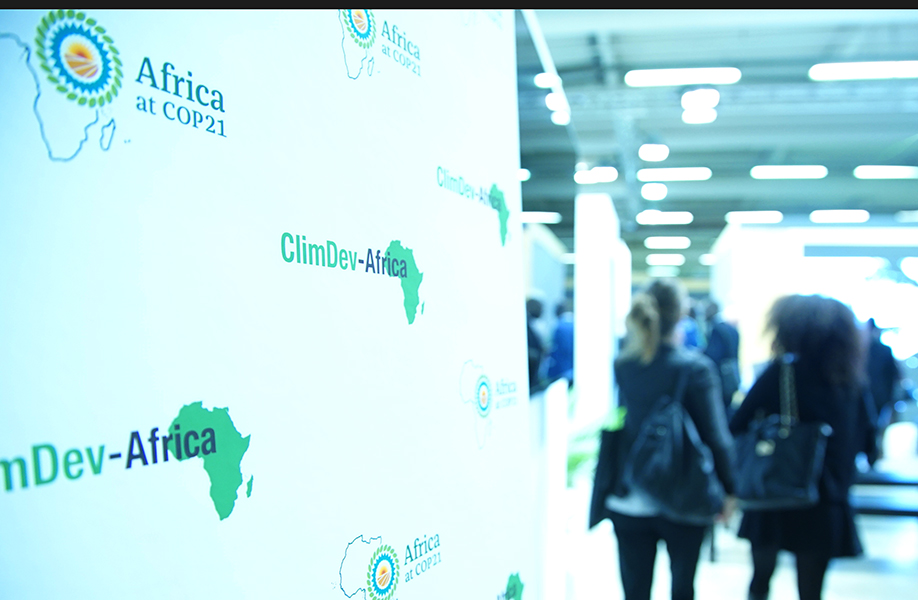Language:ENGLISH | FRANÇAIS |
||
Receive ENB+ Meeting Reports |
||
|
Receive our ENB+ bulletins and reports by email: |
||

| Follow @enbclimate | ||

Loading... |
||
|
Receive emailed updates with the news articles above plus related information and announcements from our CLIMATE-L community mailing list: |
||
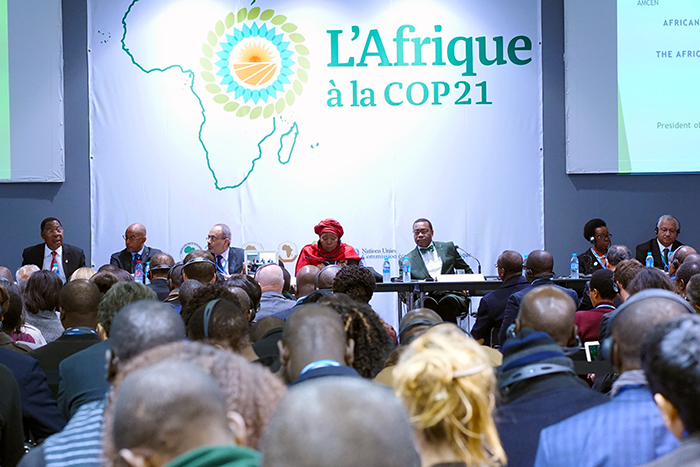
High Level Event on African Climate Solutions |
||
|
The following side events were covered by ENB+ on Tuesday, 1 December 2015:
|
||
|
IISD Reporting Services, through its ENB+ Meeting Coverage, is providing web coverage, including photos and video, of selected events from the Africa Pavilion at COP 21. | ||
Africa Pavilion Launch:
High Level Event on African Climate Solutions in the New Climate Change Agreement
Presented by: Committee of the African Heads of State and Government on Climate Change (CAHOSCC)
|
|
This event launched the African Renewable Energy Initiative and the African Initiative on Adaptation and Loss and Damage, and officially opened the Africa Pavilion. It was moderated by Mohamed A.S Abdel Monem, Advisor to the Minister on African Affairs, Ministry of Environment, Egypt. Nkosazana Dlamini-Zuma, Chairperson, African Union Commission (AUC), welcomed participants and officially launched the Africa Pavilion at COP 21. She noted that the problem of climate change was created by humanity and that it can therefore be overcome by human action. She argued that it will not matter how much money the African Development Bank (AfDB) and other donors provide to Africa if there is a lack of skilled personnel and training for young people to enable them to innovate. She further said that it is only when this training and innovation occur “that Africa will really rise.” Carlos Lopes, Executive Secretary, UN Economic Commission for Africa (UNECA), remarked that COP 21 is too large to fail, particularly for Africa. He said the new climate framework must speak to African development priorities and deliver a fair agreement for Africa. He noted that Africa is making an effort and wants to transform its economies to pursue low carbon growth and deliver prosperity and that Africa is endowed with an array of renewable energy options but suffers from a lack of energy and infrastructure capacity. Ibrahim Assane Mayaki, Chief Executive Officer, The New Partnership for Africa’s Development (NEPAD) Planning and Coordinating Agency, stated that the time for action is now to strategically transform Africa and that NEPAD’s aim is to set up the right synergies between different institutions and strategic groups to reach the AUC’s 2063 Agenda. President Thomas Boni Yayi, Benin, outlined that Africa has come to COP 21 to ensure it succeeds in increasing ambition to keep future temperature rise to below 2°C above pre-industrial levels. He outlined that the future of the world depends on African contributions and willingness to implement structural reforms. He said Africa did not come to Paris to beg for money, but to provide contributions as climate change touches all of humanity. He noted that time is of the essence, that Africa is “burning” and that it is necessary to build the continent for the future. Mohamed A.S Abdel Monem, presented further information on the African Renewable Energy Initiative which will start by implementing a minimum of 10 gigawatts of renewable energy by 2020, and the African Initiative on Adaptation and Loss and Damage which hopes to deliver concrete, timely, coordinated and implementable initiatives across the continent. Akinwumi Adesina, President, AfDB, stated that Africa is no longer the same due to environmental degradation that has led to unacceptable displacement and migration. He outlined that Africa has been shortchanged by the impacts of climate change and thus it must ensure that the continent is not shortchanged by climate finance. He announced that AfDB will provide US$5 billion dollars per year by 2020 for climate change which constitutes a tripling of its contributions and makes climate finance 40% of the bank’s portfolio. He said that COP 21 cannot be successful unless it meets the needs of Africa and that the agreement needs to be legally-binding. Tumusiime Rhoda Peace, Commissioner for Rural Economy and Agriculture, AUC, closed the event by giving a note of thanks and stating that the Africa Pavilion is a part of debunking the notion that Africa is only a victim of climate change. In fact, she said, Africa is working to solve climate change for example through the AUC’s Agenda 2063. | ||
|
|
|
|
|
|
|
|
|
|
|
||||
Africa’s Journey in the Global Climate Negotiations: Key Findings of Stocktaking Studies Presented by: UN Economic Commission for Africa (UNECA)
|
|
|
|
This session was organized around the theme of a forthcoming publication on the history, milestones and path of African countries and climate governance, which will be titled “Africa’s Journey in the Global Climate”. Fatima Denton, Director, Special Initiatives Division, UNECA, and editor-in-chief of the publication, moderated the session. Tumusiime Rhoda Peace, Commissioner for Rural Economy and Agriculture, African Union Commission (AUC), said that for Africa to be more assertive in negotiations it must reflect on its journey in global climate governance. She underscored this by highlighting the role of African leaders at the World Meteorological Organization and UN Environment Programme during the early period when climate change was first recognized as a global challenge and the UNFCCC negotiations were launched. She said that Africa hopes the Paris outcome is legally-binding and guided by the principle of common but differentiated responsibilities. Carlos Lopes, Executive Secretary, UNECA, said that GDP growth alone cannot propel Africa for the rest of the century. He noted that the import substitution model of growth in Latin America has shown its limitations, as well as the export model of Asia. Thus, he said, Africa must be different. He explained the continent has not yet industrialized, and so where other countries must retrofit, Africa can leapfrog with new technology. Abdoulaye Balde, Minister for Environment and Sustainable Development, Senegal, said that climate change is no longer a challenge but an opportunity. He said that Africa needs a dynamic private sector, accessible technology, and the means of implementation. Teneng Mba Jaiteh, Ambassador to the European Union, The Gambia, said that African negotiators have been instrumental throughout the history of the UNFCCC. She implored policymakers to work with their negotiators to bring about an ambitious climate change agreement in Paris. Seth Osafo, former Legal Officer, UNFCCC, discussed the history of Africa at the UNFCCC, saying that in the beginning the continent was not very well coordinated and acted primarily as part of the G77/China without considering whether their interests were truly aligned. Now, he said, Africa speaks with one voice as a coherent body making substantive contributions. Nagmeldin Elhassan, Chair of the African Group of Negotiators, said that climate financing of US$100 billion per year may not be enough, as some estimates state the necessary total is between US$700 billion and US$1 trillion to stay below a 2°C temperature rise. Uzoamaka Nwamarah, Senior Climate Finance and Policy Expert, formerly with African Development Bank, said that key messages from the publication include that African states have consistently strived to play their part in global efforts under the UNFCCC and that Africa has shown leadership from the beginning. Chukwumerije Okereke, Associate Professor and Director of Research on African Environment and Development, University of Reading, highlighted that Africa’s engagement in the UNFCCC has improved over time, noting that in 1992 only 80 Africans participated, while in Durban in 2011 there were more than 2,300 African delegates. Bubu Jallow, Adviser, Ministry of Environment, The Gambia, said that developing countries need to push for a coordinating body on adaptation. Kalame Fobissie, University of Helsinki, said that Africa should focus on non-carbon benefits for REDD+ since it involves governance, watershed protection and livelihoods, among others. Stephan Hoch, Climate Policy Consultant, Perspectives GmbH, said that a key finding of the publication is that Intended Nationally Determined Contributions (INDCs) are a large change for Africa in that they are more comprehensive and not incentive-based, and thus represent a test for countries. Fatima Denton closed the session, thanking panelists and the audience and noting that the book, “Africa’s Journey in the Global Climate” will be available in 2016. |
||
|
|
||||
Incentives for Pro-Poor Climate Financing Presented by: International Institute for Environment and Development (IIED) and the UN Economic Commission for Africa (UNECA)
|
Giza Gaspar-Martins, Least Developed Countries (LDC) Group Chair and Director of the Department of Climate Change, Ministry of Environment, Angola, opened the session highlighting research by IIED that says that it will cost US$93.7 billion to implement the submitted Intended Nationally Determined Contributions (INDCs) in the post-2020 climate plan for 48 LDCs. The event was moderated by Saleemul Huq, Director, International Centre for Climate Change and Development (ICCCAD). Neha Rai, Senior Researcher, IIED, said that of the US$350 billion dollars provided for climate finance globally, only 10% have gone to developing countries. She further noted that of the US$40 billion provided to developing countries each year, 70% has gone to middle income countries and only a third to Least Developed Countries. She highlighted that the reason money is not going to the poor is that they have specific financial needs and require specific types of financial instruments and inclusive intermediaries to manage the funds. Benito Müller, Director, European Capacity Building Initiative, highlighted that devolution to the local decision making level is important to enhance direct access to Green Climate Fund (GCF) resources. He encouraged countries to test their existing financial transfer mechanisms, such as development banks, to see which ones work best with regards to reaching local communities. He underscored this point by noting that local people and small enterprises will “go to local banks for funding, not to Songdo” (the headquarters of the GCF). Victor Orindi, National Disaster Management Authority, Kenya, outlined a project working in five counties in Kenya to support them in accessing climate finance. To ensure that the money reaches the local communities, the project’s County Climate Change Fund has a devolved governance system where the local communities’ funding wishes are prioritized. He noted that the project has found that investing in processes that build the capacity of communities and local governments to engage with each other takes time and resources but is critical and delivers more lasting positive change Raju Pandit Chhetri, Prakriti Resources Centre, Nepal, spoke about Nepal’s priority for funding renewable energy and the five-year National Rural Renewable Energy Program that costs US$170 million and splits financing 50/50 between the Government of Nepal and donors. He outlined numerous challenges with the project, amongst other things: renewable energy still being a new sector that needs greater support and incentives; the geography of the country providing access difficulties; administrative burdens providing challenges; and renewable energy not being profitable to the private sector. Saleemul Huq criticized the capacity building support the GCF provides to countries to access the fund. He outlined that to mitigate the lack of capacity building support Bangladesh visited and learned from a Senegalese organization as they are the first organization to be accredited to both the Adaptation Fund and the GCF. He concluded by stating that South-South collaboration is crucial in learning how to access climate finance. During the ensuing discussions, participants discussed, inter alia: what is meant by “local” in the GCF direct access modality; how other funds and nations can use the same direct access modality; the split between government and donor funding for both the Nepal and Kenya projects; the Bangladesh experience from visiting the Senegalese organization; and community participation in the Kenyan project. In response to a question from the audience regarding corruption, Müller said that “the only corruption-proof funding system is giving no money” and that the risk to funders is decreased when they fund many small projects rather than a few big projects. | ||
|
|
|
|
|
||||
REDD+ in Central Africa: Lessons Learned, Issues and Challenges Presented by: International Union for the Conservation of Nature (IUCN)
This event focused on the implementation of REDD+ (reduced emissions from deforestation and forest degradation, conservation of existing forest carbon stocks, sustainable forest management and enhancement of forest carbon stocks) in the Central African region. Remi Jiagho, IUCN, moderated the session. Joseph Amougou, Ministry of Environment, Cameroon, discussed his country’s experience implementing REDD+. He said that implementation occurred in various phases, including through consultation with multiple stakeholders, associating the programme with national development aims, and maintaining national autonomy despite foreign interest and desire for control. Among lessons learned he underlined the fact that REDD+ is a development tool that countries can harness independently, and that while outsiders focus purely on carbon, locals understand that forests provide other services including on biodiversity, the environment, and other non-carbon benefits. George Claver Boudzanga, Ministry of Environment, Congo, said REDD+ is an inclusive and participation based programme, which means that awareness raising in local communities is crucial. He said that national REDD+ strategies need to be based on the financing and means that are available, and that REDD+ should be connected to the overall national sustainable development plan. He urged not to duplicate programmes and processes that are already in place regarding monitoring and verification. Bernard Mabounda, Facilitator Platform, OSC Congo, highlighted the importance of organizing civil society and indigenous peoples around the issue of climate change. He introduced the CACO-REDD+ organization that includes more than 120 NGOs in the Republic of Congo and has helped overcome hurdles to implementation. Robert Ngoufo, President, Cameroon IUCN National Committee, urged linking REDD+ to other processes and not duplicating processes that are already in place. He reiterated the call from other speakers to measure REDD+ in terms of socioeconomic development, not just carbon. Hervé Maidou, Regional Project REDD, Central African Forest Commission (COMIFAC), noted the importance of partnerships especially in regards to the successes of COMIFAC. He lamented the ongoing problem of funding and said that financial resources are often variable, and closed by saying that “the problem with forests can often be found outside the forest,” such as with governance or land use regulations. During the discussion, audience members and panelists exchanged views on, inter alia: agroforestry, civil society involvement in REDD+, communication between national ministries, the need to utilize national experts, finding more national financing, and non-carbon benefits. Remi Jiagho closed the session noting ongoing challenges such as the need for capacity building and financing, technical challenges, and difficulty with adopting new technology. |
||
|
|
|
|
|
||||
Other Events
Climate Change: Financing and Capacity Development Challenges Presented by: Islamic Development Bank
|
|
|
|
Around the Venue
|
|
|
|
|
|
The Africa Pavilion @ COP 21 Bulletin © <enb@iisd.org> is a special publication of the International Institute for Sustainable Development (IISD). This issue has been written by Dina Hestad and Brett Wertz. The Digital Editor is Liz Rubin. The Editor is Tomilola Akanle Eni-ibukun, Ph.D. <tomilola@iisd.org>. The Director of IISD Reporting Services is Langston James “Kimo” Goree VI <kimo@iisd.org>. Funding for coverage of the Africa Pavilion at COP 21 has been provided by the UN Economic Commission for Africa (UNECA). The opinions expressed in the Bulletin are those of the authors and do not necessarily reflect the views of IISD and funders. Excerpts from the Bulletin may be used in non-commercial publications only with appropriate academic citation. For permission to use this material in commercial publications, contact the Director of IISD Reporting Services at <kimo@iisd.org>. Electronic versions of issues of the Africa Pavilion @ COP 21 Bulletin can be found on the IISD Reporting Services website at http://enb.iisd.org/climate/cop21/cdafrica-ap/. The IISD team at the Africa Pavilion at COP 21 can be contacted by e-mail at <brett@iisd.org>. |
||

